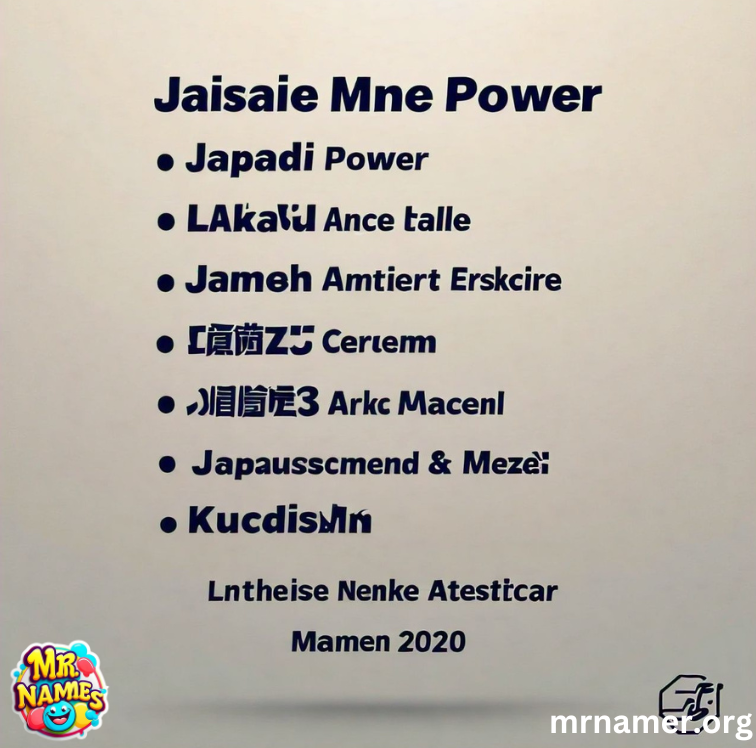300+ Japanese Names That Mean Power
Japanese names that mean power are a great choice for parents who want to give their child a name with strong meaning. These names are inspired by nature, heroes, and qualities that are valued in Japanese culture. Choosing a powerful name can help set a strong foundation for a child’s future, reflecting strength and determination.
Top Japanese Names That Mean Power
Exploring Japanese names that mean power reveals many unique options. Names like “Ken” (which means strong) and “Riki” (which means power) are popular choices. These names not only sound beautiful but also carry a significant meaning. Whether you are looking for baby boy names or baby girl names, there are plenty of powerful Japanese names to consider.
Popular Japanese Names That Mean Power in Anime
- Goku (悟空) – From “Dragon Ball,” meaning aware of emptiness.
- Naruto (鳴門) – From “Naruto,” meaning maelstrom.
- Sasuke (佐助) – From “Naruto,” meaning help or assistance.
- Eren (エレン) – From “Attack on Titan,” derived from the Turkish word meaning saint or holy.
- Levi (リヴァイ) – From “Attack on Titan,” meaning joined in harmony.
- Ichigo (一護) – From “Bleach,” meaning one who protects.
- Kenshin (剣心) – From “Rurouni Kenshin,” meaning humble sword.
- Yusuke (幽助) – From “Yu Yu Hakusho,” meaning brave ghost.
- Natsu (ナツ) – From “Fairy Tail,” meaning summer.
- Gray (グレイ) – From “Fairy Tail,” derived from the English word meaning color gray.
- Erza (エルザ) – From “Fairy Tail,” derived from the name Elsa.
- Inuyasha (犬夜叉) – From “Inuyasha,” meaning dog demon.
- Luffy (ルフィ) – From “One Piece,” derived from the word “ruffian.”
- Zoro (ゾロ) – From “One Piece,” derived from the name Zorro.
- Roronoa (ロロノア) – From “One Piece,” inspired by the real-life pirate François l’Olonnais.
- Vegeta (ベジータ) – From “Dragon Ball,” meaning vegetable.
- Light (ライト) – From “Death Note,” meaning light or bright.
- L (エル) – From “Death Note,” derived from the English letter L.
- Saitama (埼玉) – From “One Punch Man,” meaning Saitama prefecture.
- Gon (ゴン) – From “Hunter x Hunter,” derived from the word gon (strong).
- Killua (キルア) – From “Hunter x Hunter,” derived from the word kill.
- Yugi (遊戯) – From “Yu-Gi-Oh!,” meaning game.
- Kenshiro (拳四郎) – From “Fist of the North Star,” meaning fist son.
- Shiro (シロ) – From “No Game No Life,” meaning white.
- Natsu (夏) – From “Fairy Tail,” meaning summer.
- Rei (零) – From “Neon Genesis Evangelion,” meaning zero or ghost.
- Shinji (シンジ) – From “Neon Genesis Evangelion,” meaning true or genuine.
- Asuka (アスカ) – From “Neon Genesis Evangelion,” meaning flying bird.
- Madara (マダラ) – From “Naruto,” meaning spots or blemishes.
- Kakashi (カカシ) – From “Naruto,” meaning scarecrow.

Travel and Tourism: Discover Japanese Names That Mean Power from Different Regions
Japanese names that mean power, inspired by different regions and cultures within Japan, each carrying unique significance:
- Tohoku Region:
- Hikaru (光) – Light; signifies illuminating and guiding strength.
- Yuki (雪) – Snow; represents purity and resilience.
- Kanto Region:
- Haruto (陽翔) – Sun flying; suggests powerful, soaring energy.
- Akira (明) – Bright, clear; signifies strong clarity and radiance.
- Chubu Region:
- Hiroto (大翔) – Great flight; denotes strong ambition and rise.
- Sora (空) – Sky; represents boundless strength and freedom.
- Kansai Region:
- Riku (陸) – Land; signifies grounded and solid strength.
- Aoi (葵) – Hollyhock; symbolizes strong and resilient beauty.
- Chugoku Region:
- Takeshi (武) – Warrior; associated with samurai strength and honor.
- Yuma (悠真) – Calm truth; blends calmness with strong integrity.
- Shikoku Region:
- Kenji (健二) – Strong second son; represents physical strength and vitality.
- Ren (蓮) – Lotus; linked with strength through purity and resilience.
- Kyushu Region:
- Kaito (海斗) – Ocean person; combines the vast strength of the sea with personal strength.
- Ryu (龍) – Dragon; symbolizes mythical and powerful energy.
- Okinawa Region:
- Kai (海) – Ocean; represents vast and powerful strength.
- Mei (芽生) – Bud; signifies growth and potential strength.
- Hokkaido Region:
- Daiki (大輝) – Great glory; denotes strong brilliance and nobility.
- Satsuki (皐月) – Fifth month; associated with vitality and strength.
- Tokyo
- Haruka (遥) – Distant; suggests far-reaching and powerful influence.
- Yuuto (勇斗) – Brave person; embodies courage and daring strength.
These names reflect the diverse cultural influences and regional characteristics of Japan, each conveying strength and power in their own unique way.
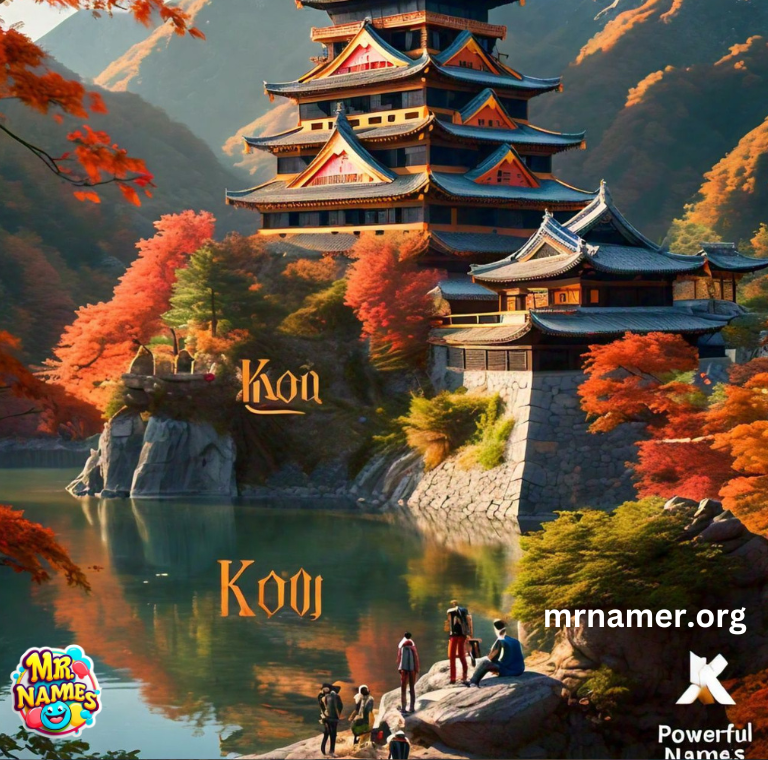
Finance and Investing: Japanese Names That Mean Power for Financial Success
- Takumi (匠) – Artisan, skilled; denotes strength in craftsmanship and precision.
- Yuko (勇子) – Brave child; embodies courage and resilience in financial decisions.
- Tetsuya (哲也) – Wise person; signifies strong judgment and wisdom in investments.
- Kenji (健二) – Strong second son; represents robustness and resilience in financial markets.
- Daiki (大輝) – Great radiance; symbolizes the brilliance and success in financial endeavors.
- Kazuma (一真) – One truth; signifies strong and unwavering conviction in financial decisions.
- Masaru (勝) – Victory; represents triumph and success in financial achievements.
- Ryu (竜) – Dragon; symbolizes power and fortune in financial ventures.
- Hiroshi (浩) – Prosperous, abundant; denotes success and prosperity in finance.
- Haruto (陽翔) – Sun flying; signifies powerful and soaring success in investments.
- Makoto (誠) – Sincere, truthful; represents integrity and honesty in financial dealings.
- Yusuke (勇介) – Brave assistance; embodies courage and strength in financial support.
- Akihiko (明彦) – Bright prince; symbolizes leadership and vision in financial strategies.
- Isamu (勇) – Courage, bravery; signifies boldness and fearlessness in financial decisions.
- Toshiro (俊郎) – Talented son; denotes excellence and achievement in financial endeavors.
- Takashi (隆) – Prosperous, eminent; signifies strong growth and success in finance.
- Naoki (直樹) – Honest tree; embodies integrity and stability in financial management.
- Satoshi (聡) – Clear thinking, wise; denotes strong intellect and strategic thinking in finance.
- Ryo (涼) – Refreshing, cool; symbolizes calm and collected approach to financial success.
- Yuta (悠太) – Leisurely big; signifies a relaxed yet powerful approach to financial investments.
- Haruki (晴輝) – Bright radiance; denotes powerful and illuminating success in financial markets.
- Kenta (健太) – Healthy and strong; embodies robustness and resilience in financial ventures.
- Shinji (真二) – True second son; symbolizes authenticity and reliability in financial decisions.
- Hikaru (光) – Light; signifies enlightenment and clarity in financial strategies.
- Ren (蓮) – Lotus; linked with strength through purity and resilience in financial resilience.
- Hayato (隼人) – Falcon person; symbolizes speed and agility in financial opportunities.
- Takuma (拓磨) – Expand, truth; denotes expansion and exploration in financial growth.
- Koji (幸二) – Happiness second son; signifies joy and success in financial achievements.
- Yoshito (義人) – Righteous person; embodies ethical and principled financial decisions.
- Sho (翔) – Soar; signifies ambitious and successful financial aspirations.
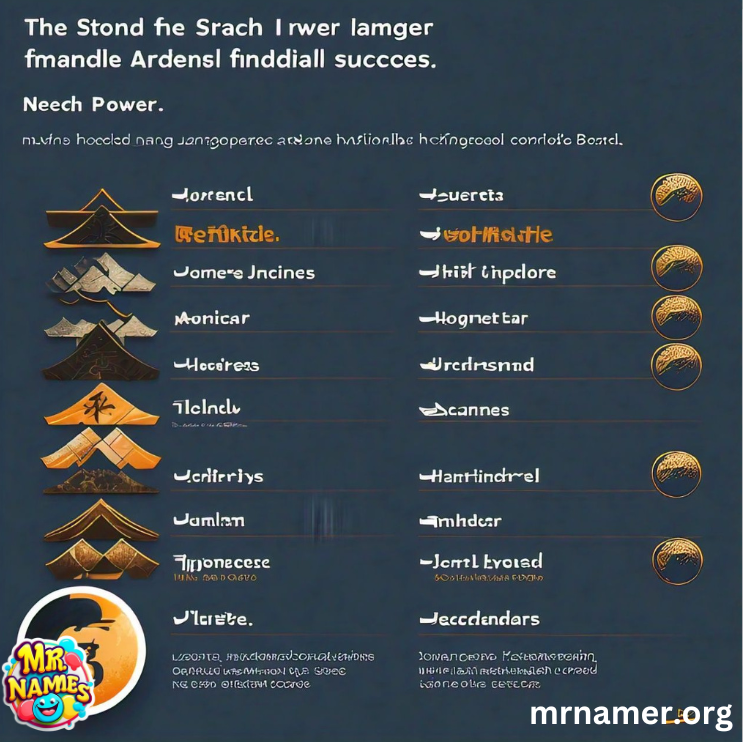
Best Other Funniest Names: 1. Names Like Atlas
Relationships and Dating: Romantic Japanese Names That Mean Power for Your Loved One
- Yuuki (勇気) – Courage; symbolizes the strength to face challenges together.
- Haruto (陽翔) – Sun soaring; signifies powerful and uplifting love.
- Kiyoshi (清) – Pure, clear; denotes a strong and sincere love.
- Sora (空) – Sky; represents boundless and powerful love.
- Ryuu (龍) – Dragon; symbolizes powerful and enduring love.
- Takeshi (武) – Warrior; reflects protective and strong love.
- Aiko (愛子) – Love child; embodies nurturing and powerful affection.
- Riku (陸) – Land; symbolizes grounded and steadfast love.
- Yua (結愛) – Bonded love; signifies a deep and connected relationship.
- Ren (蓮) – Lotus; linked with strength through purity and resilience in love.
- Yuto (優斗) – Gentle person; combines gentleness with inner strength in love.
- Hikaru (光) – Light; represents illuminating and guiding love.
- Makoto (誠) – Sincere, truthful; denotes strong and honest love.
- Nao (直) – Honest, upright; signifies straightforward and genuine love.
- Sakura (桜) – Cherry blossom; symbolizes fleeting yet powerful love.
- Tomo (朋) – Friend; embodies companionship and supportive love.
- Kazu (和) – Harmony; reflects peaceful and harmonious love.
- Asuka (飛鳥) – Flying bird; signifies liberated and adventurous love.
- Airi (愛理) – Love reason; denotes logical and deeply affectionate love.
- Shin (真) – True; represents genuine and authentic love.
- Haru (春) – Spring; symbolizes refreshing and renewing love.
- Kenta (健太) – Healthy and strong; signifies robust and enduring love.
- Ayumu (歩) – Walk; embodies moving forward together in love.
- Yui (結) – Bind; signifies a strong and binding connection in love.
- Rina (莉奈) – Jasmine; symbolizes delicate yet powerful love.
- Naoki (直樹) – Honest tree; represents stable and reliable love.
- Hiroto (大翔) – Great flight; denotes ambitious and soaring love.
- Aya (彩) – Color; signifies vibrant and enriching love.
- Takara (宝) – Treasure; symbolizes precious and cherished love.
- Koharu (小春) – Early spring; represents youthful and blossoming love.
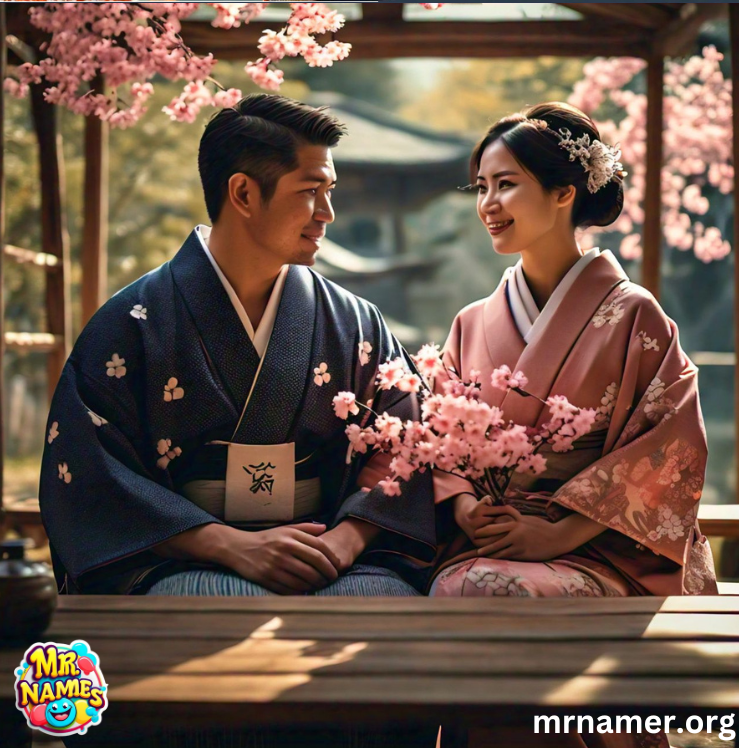
E-commerce and Online: Popular Japanese Names That Mean Power for Your Online Brand
- Kenzo (健三) – Strong, healthy; signifies robustness and vitality.
- Ryoku (力) – Power, strength; straightforward representation of strength.
- Kiyoshi (清) – Clear, pure; denotes strong clarity and integrity.
- Tetsuya (哲也) – Wise person; combines wisdom with inner strength.
- Yuko (勇子) – Brave child; embodies courage and resilience.
- Daisuke (大輔) – Great help; symbolizes strong support and assistance.
- Takashi (崇) – Esteemed, revered; signifies respected strength.
- Masaru (勝) – Victory; represents triumphant strength and success.
- Hayate (疾風) – Swift wind; denotes powerful and fast-moving energy.
- Katsu (勝) – Victory; straightforward representation of success and strength.
- Tsubasa (翼) – Wings; symbolizes freedom and powerful flight.
- Shinjiro (慎次郎) – True second son; embodies strong authenticity and reliability.
- Haruki (陽輝) – Bright sunshine; signifies radiant and powerful energy.
- Aiko (愛子) – Love child; represents nurturing and powerful love.
- Yushin (勇真) – Brave truth; blends courage with strong authenticity.
- Riku (陸) – Land; symbolizes solid and grounded strength.
- Asuka (明日香) – Fragrance of tomorrow; embodies powerful and promising future.
- Kazuma (一真) – One truth; signifies strong and unwavering conviction.
- Taiki (大樹) – Big tree; symbolizes enduring and rooted strength.
- Haruto (陽翔) – Sun soaring; denotes powerful and soaring energy.
- Naoki (尚樹) – Esteemed tree; represents respected and strong presence.
- Hikaru (光) – Light; symbolizes illuminating and guiding strength.
- Makoto (誠) – Sincere, truthful; denotes strong integrity and authenticity.
- Ren (蓮) – Lotus; linked with strength through purity and resilience.
- Tomo (智) – Wisdom; signifies strong intellect and understanding.
- Sora (空) – Sky; represents boundless and powerful freedom.
- Ryota (涼太) – Refreshing big; symbolizes cool and refreshing strength.
- Yuma (悠真) – Calm truth; blends calmness with strong integrity.
- Kenta (健太) – Healthy and strong; embodies physical strength and vitality.
- Haruka (遥) – Distant; signifies far-reaching and powerful influence.
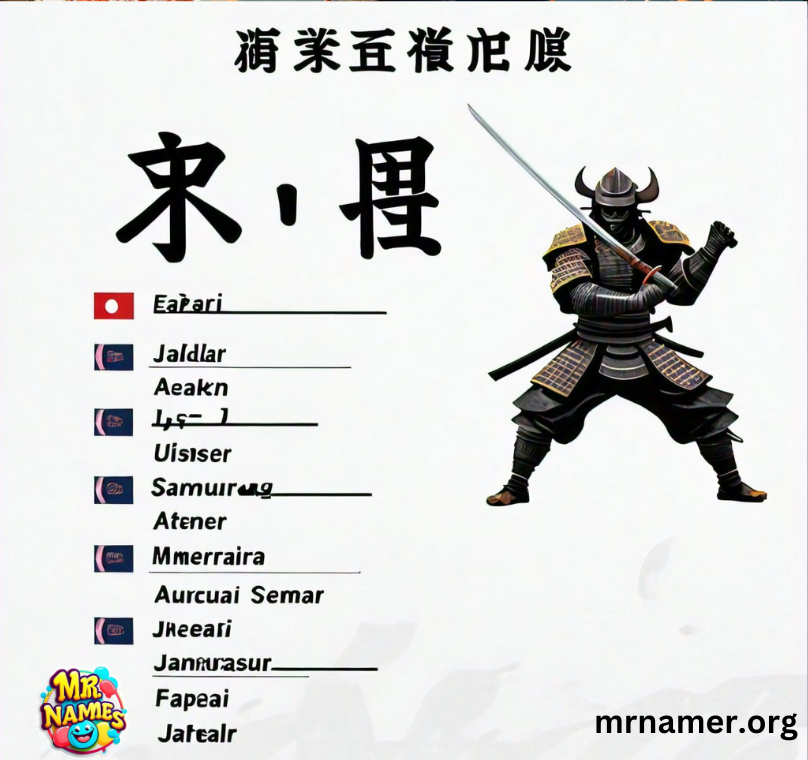
Traditional Japanese Names That Mean Power: Cultural Significance
- Ken (健) – Strong, healthy; often used to signify physical strength.
- Riki (力) – Power, strength; straightforward representation of power.
- Takeshi (武) – Warrior, military; associated with samurai and martial prowess.
- Isamu (勇) – Courage, bravery; denotes inner strength and valor.
- Tsuyoshi (剛) – Strong, sturdy; suggests resilience and robustness.
- Masaru (勝) – Victory; signifies triumph and superior strength.
- Katsu (勝) – Victory; a common name symbolizing success and strength.
- Haruki (晴輝) – Shining brightly; combines elements of brightness and strength.
- Daiki (大輝) – Great glory, great nobility; signifies grand strength and honor.
- Akio (明雄) – Bright man, hero; associated with clarity and heroic strength.
- Kazuki (一希) – One hope, harmonious hope; represents unified strength and aspiration.
- Takeru (武) – Warrior, fierce; embodies the spirit of a strong fighter.
- Hiroshi (広) – Generous, prosperous; implies a strong, wide-reaching influence.
- Noboru (昇) – To ascend, rise; signifies rising strength and ambition.
- Yuji (勇次) – Brave second son; combines courage with familial significance.
- Satoshi (聡) – Clear thinking, wise; denotes intellectual strength.
- Hiroto (大翔) – Great flight, big rise; suggests soaring strength and ambition.
- Kenji (健二) – Strong second son; combines physical strength with familial importance.
- Ryota (亮太) – Clear, big; signifies clarity of strength and grandeur.
- Shigeru (茂) – Luxuriant, strong growth; suggests robust and thriving strength.
- Takumi (匠) – Artisan, skillful; represents skilled strength and craftsmanship.
- Yuto (優斗) – Gentle, person; blends gentleness with inner strength.
- Koji (康二) – Peaceful second son; signifies calm and enduring strength.
- Mamoru (守) – Protector; denotes protective strength and guardianship.
- Ren (蓮) – Love, lotus; linked with strength through purity and resilience.
- Hideo (英夫) – Excellent man; signifies exceptional strength and capability.
- Tadashi (忠) – Loyal, true; embodies strength through loyalty and truth.
- Naoki (直樹) – Honest, straight; represents strength in integrity.
- Toshiro (俊郎) – Talented son; denotes strength in talent and skill.
- Michio (道夫) – Man on a righteous path; signifies strength through righteousness and direction.
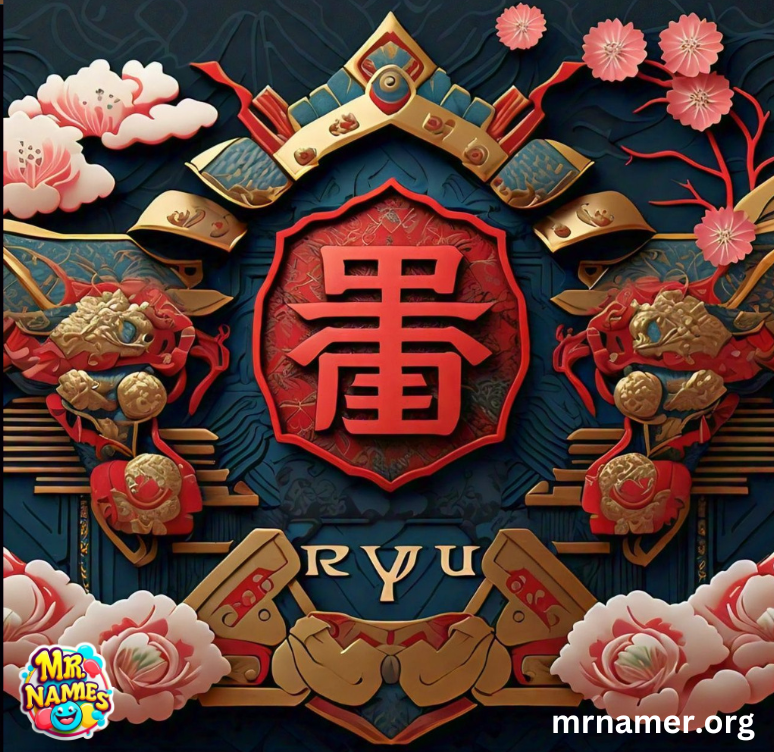
Powerful Japanese Names for Girls
- Aiko (愛子) – Love child
- Akira (明) – Bright, clear
- Chikara (力) – Power, strength
- Emiko (恵美子) – Blessed, beautiful child
- Hana (花) – Flower, blossom
- Haruka (遥) – Distant, remote
- Hikari (光) – Light, radiance
- Himari (陽葵) – Sunflower
- Honoka (穂花) – Spike, ear (of grain), flower
- Kaede (楓) – Maple tree
- Kairi (海里) – Ocean village
- Kanade (奏) – Music, play
- Kanna (神奈) – Divine, graceful
- Kasumi (霞) – Mist
- Kiyomi (清美) – Pure beauty
- Mai (舞) – Dance
- Maki (真希) – True hope
- Mana (愛) – Love, affection
- Mariko (真理子) – True child
- Misaki (美咲) – Beautiful blossom
- Miyu (美優) – Beautiful kindness
- Natsumi (夏美) – Beautiful summer
- Riko (莉子) – Jasmine child
- Rina (里奈) – Village greens
- Saki (咲) – Blossom, bloom
- Sakura (桜) – Cherry blossom
- Satomi (里美) – Village beauty
- Sayaka (沙耶香) – Clear fragrance
- Yui (結衣) – Bind, garment
- Yuna (優奈) – Gentle, elegant
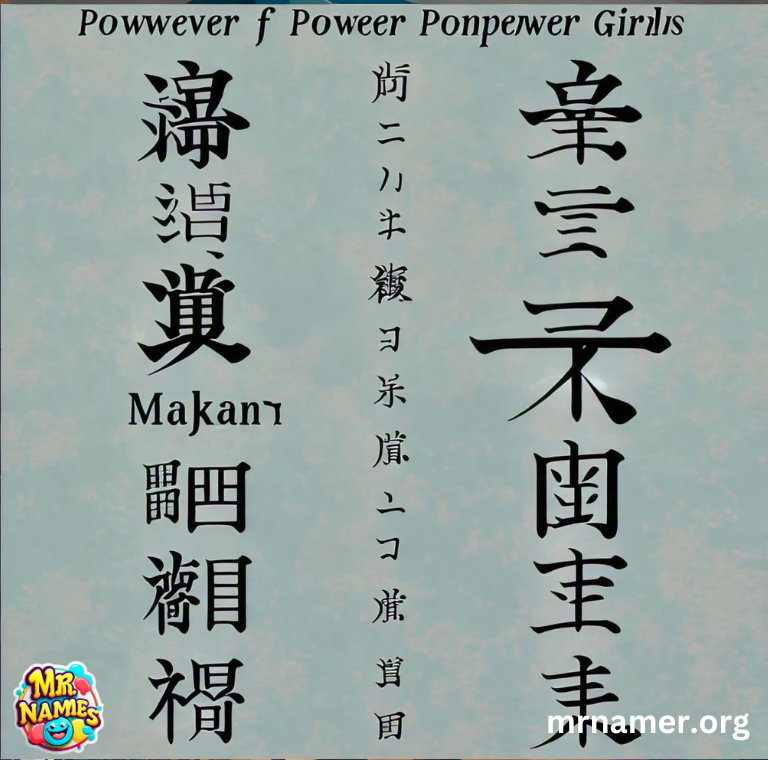
Japanese Names That Mean Power: Strong Names for Boys
- Ken (剣) – Strong, healthy
- Riki (力) – Power, strength
- Takeru (武) – Warrior, fierce
- Tsuyoshi (剛) – Strong, sturdy
- Isamu (勇) – Courage, bravery
- Jiro (次郎) – Second son, associated with strength
- Takeshi (武) – Warrior, military
- Masaru (勝) – Victory, superior
- Katsu (勝) – Victory
- Hayato (隼人) – Brave, strong
- Haruki (晴輝) – Shining brightly
- Daiki (大輝) – Great glory, great nobility
- Akio (明雄) – Bright man, hero
- Kazuki (一希) – One hope, harmonious hope
- Genji (源氏) – Two beginnings, strong start
- Hiroshi (広) – Generous, prosperous
- Noboru (昇) – To ascend, rise
- Yuji (勇次) – Brave second son
- Satoshi (聡) – Clear thinking, wise
- Hiroto (大翔) – Great flight, big rise
- Kenji (健二) – Strong second son
- Ryota (亮太) – Clear, big
- Shigeru (茂) – Luxuriant, strong growth
- Takumi (匠) – Artisan, skillful
- Yuto (優斗) – Gentle, person
- Koji (康二) – Peaceful second son
- Mamoru (守) – Protector
- Ren (蓮) – Love, lotus, linked with strength
- Hiro (寛) – Broad, widespread
- Ryota (良太) – Splendid, thick, big
Unique Japanese Names That Mean Power for Babies
- Kenzo (健三) – Strong, healthy
- Rikuto (陸斗) – Land, strong man
- Tatsuya (達也) – Accomplished, achieving
- Fumio (文雄) – Scholarly hero
- Hideki (秀樹) – Excellent timber or tree
- Katsuro (勝郎) – Victorious son
- Masashi (雅志) – Elegant aspiration
- Raiden (雷電) – Thunder and lightning
- Takeo (武雄) – Warrior hero
- Yoshio (義雄) – Righteous hero
- Zenji (善治) – Virtuous, good
- Hiroki (宏樹) – Vast timber or tree
- Makoto (誠) – Sincere, truth
- Nariko (成子) – Success child
- Satoshi (智) – Clear thinking, wise
- Takara (宝) – Treasure
- Toshio (俊雄) – Genius hero
- Yoshiro (義郎) – Righteous son
- Ryusei (流星) – Shooting star, dragon star
- Akihiko (明彦) – Bright prince
- Eiji (英二) – Excellent second son
- Isao (功) – Honor, merit
- Katsumi (勝美) – Victorious beauty
- Masato (正人) – Right person
- Noboru (昇) – To ascend, rise
- Seiji (誠司) – Lawful, just
- Taro (太郎) – Big son
- Yuichi (雄一) – Heroic first son
- Kenta (健太) – Healthy and strong
- Michio (道夫) – Man on a righteous path
Modern Japanese Names That Mean Power: Trendy Picks
- Arata (新) – Fresh, new; signifies new strength and beginnings.
- Eito (瑛斗) – Glorious person; embodies shining strength.
- Haruto (陽翔) – Sun flying; suggests powerful, soaring energy.
- Kaito (海斗) – Ocean person; combines the vast strength of the sea with personal strength.
- Ren (蓮) – Lotus; linked with strength through purity and resilience.
- Reo (怜央) – Wise center; signifies strong intellect and leadership.
- Sora (空) – Sky; represents boundless strength and freedom.
- Yuma (悠真) – Calm truth; blends calmness with strong integrity.
- Hiro (大) – Broad, widespread; suggests expansive strength.
- Kota (幸太) – Happiness, big; denotes strong joy and presence.
- Ryuto (龍斗) – Dragon person; combines mythical strength with personal power.
- Akira (陽) – Bright, clear; signifies strong clarity and radiance.
- Hinata (日向) – Sunny place; embodies warm, powerful energy.
- Kai (海) – Ocean; represents vast and powerful strength.
- Riku (陸) – Land; signifies grounded and solid strength.
- Sho (翔) – Soar; suggests the strength to rise and achieve.
- Touma (斗真) – Big dipper, truth; combines cosmic strength with honesty.
- Yuki (勇気) – Courage; straightforward representation of brave strength.
- Aoi (葵) – Hollyhock; symbolizes strong and resilient beauty.
- Hayato (颯人) – Swift person; embodies quick and powerful energy.
- Hikaru (光) – Light; signifies illuminating and guiding strength.
- Itsuki (樹) – Tree; represents strong and rooted power.
- Jiro (次郎) – Second son; traditionally conveys strength through family.
- Kenta (健太) – Healthy and strong; straightforward representation of physical strength.
- Naoki (直樹) – Honest tree; signifies strong integrity and stability.
- Rei (礼) – Gratitude; represents strong and respectful presence.
- Shin (真) – True; embodies strength in truth and authenticity.
- Taiga (大河) – Big river; symbolizes powerful and continuous flow.
- Yuto (優斗) – Gentle person; combines gentleness with inner strength.
- Zen (禅) – Meditation; signifies strong and peaceful presence.
Conclusion
Japanese names that mean power embody a rich cultural heritage and profound significance. Rooted in themes of strength, courage, and resilience, these names resonate with timeless virtues and aspirations. Each name reflects the deep-rooted values of Japanese culture, blending tradition with modernity to symbolize influence and authority. From traditional names like Takeshi and Masaru to modern choices such as Haruto and Yua, these names evoke a sense of empowerment and determination. Whether used in personal contexts or as part of a brand identity, Japanese names that mean power convey a sense of strength and prestige, making them enduring and impactful choices in various spheres of life.
FAQS
Yes, Japanese names that mean power can be suitable for both boys and girls. Many of these names have unisex appeal and can convey strength regardless of gender.
These names can be used for individuals looking to embody strength and influence, or for businesses seeking a powerful brand identity. They are also popular choices for characters in literature, films, and anime.
